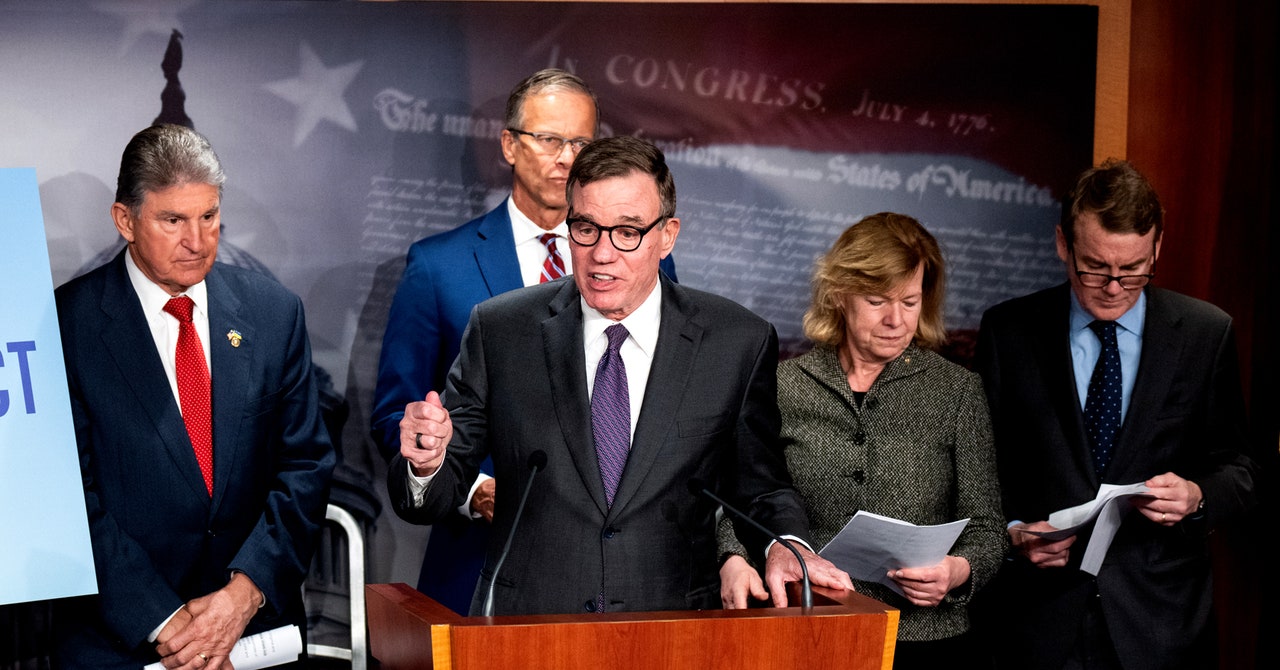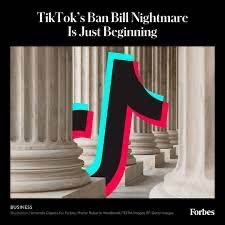In the future, it might be a new mobile game or an algorithm helping students study at home. It could be the latest graphics card or exercise bike, or an app that pairs families with puppies. With fewer and fewer aspects of life going untouched by technology, it could be practically anything. Right now, it’s TikTok, with its billions of users worldwide.
US Senator Mark Warner (D-Virginia) wants the United States armed with the ability to take swift action against technology companies suspected of cavorting with foreign governments and spies, to effectively vanish their products from shelves and app stores when the threat they pose gets too big to ignore. His new bill, the Restrict Act, would give that responsibility to the US commerce secretary, charging their office with reviewing and, under certain conditions, banning technologies flagged by US intelligence as a credible threat to US national security. Though the technology’s owners and manufacturers would have every right to dispute any outcome in court if the Restrict Act becomes law, it is nevertheless an enormous authority to bestow—one with boundless implications for America’s competitors overseas.
The thought that such decisions could be wildly unpopular at home or elicit misgivings from global allies has not escaped Warner. Without sufficient transparency around the process, the government’s moves could result in chaos. Warner says the intelligence community should be held to account for the decisions it influences, providing not only to Americans but also the world the information it needs to understand how and why this new power is being used. He knows it may not always be at liberty to do so.
TikTok’s ties to China have more or less spooked authorities in several countries, with numerous officials in the US alone claiming to have spoken directly with whistleblowers who offered tales about abuses of personal data. Today, the United Kingdom joined several other nations, including the US, in banning the app across all government devices.
The British, like their American, Belgian, and Canadian counterparts, are fearful that the app may offer Beijing’s intelligence agencies the ability to track key officials’ movements and intercept the sensitive information they keep. Other countries already have laws to accomplish what Warner is seeking to do. In 2020, for instance, India’s ministry of electronics banned TikTok entirely, citing authority intended to safeguard the “safety and sovereignty of Indian cyberspace.”
The Restrict Act’s future is unknown, but it’s gathered considerable bipartisan support in Congress, and there are very few reasons for America’s tech giants to get in the way. To understand more about Warner’s position on security, invasive tech, and privacy concerns that hit closer to home, WIRED spoke with the Virginia Democrat this week. Our conversation has been edited for length and clarity.
WIRED: Tell us about the Restrict Act and its purpose.
Mark Warner: Over the past few years, we’ve seen challenges coming from foreign-based technology. Originally it was Kaspersky, a Russian software company, then it was Huawei, a Chinese telecom provider, and more recently, the discussion has been about this Chinese-owned social media app, TikTok. We seem to have a whack-a-mole approach to foreign-based technology, and I think instead we need a comprehensive rules-based approach that recognizes national security is no longer simply tanks and guns, but is really a question about technology and technology competition. In the case of Kaspersky, it was software that kept getting updated from Moscow, and with Huawei, it was a way for the Communist Party in China to listen in. In the case of TikTok, it’s the enormous amounts of data being collected that potentially could end up in China or, given the fact that a hundred million Americans a day are using it an average 90 minutes a day, it could be an enormous propaganda tool. Let me be clear: Because China changed its law in 2016 to make sure that, at the end of the day, every company’s ultimate master is the Communist Party of China. It’s not the shareholders, it’s not the employees, it’s sure not the customers. And this is a national security risk.

































